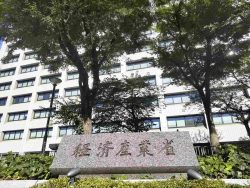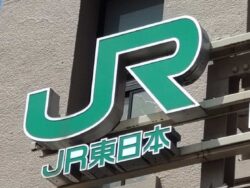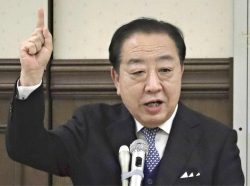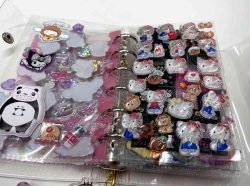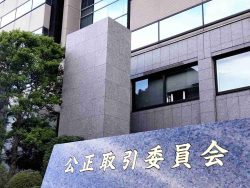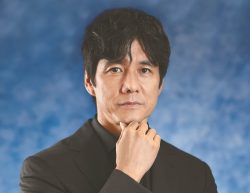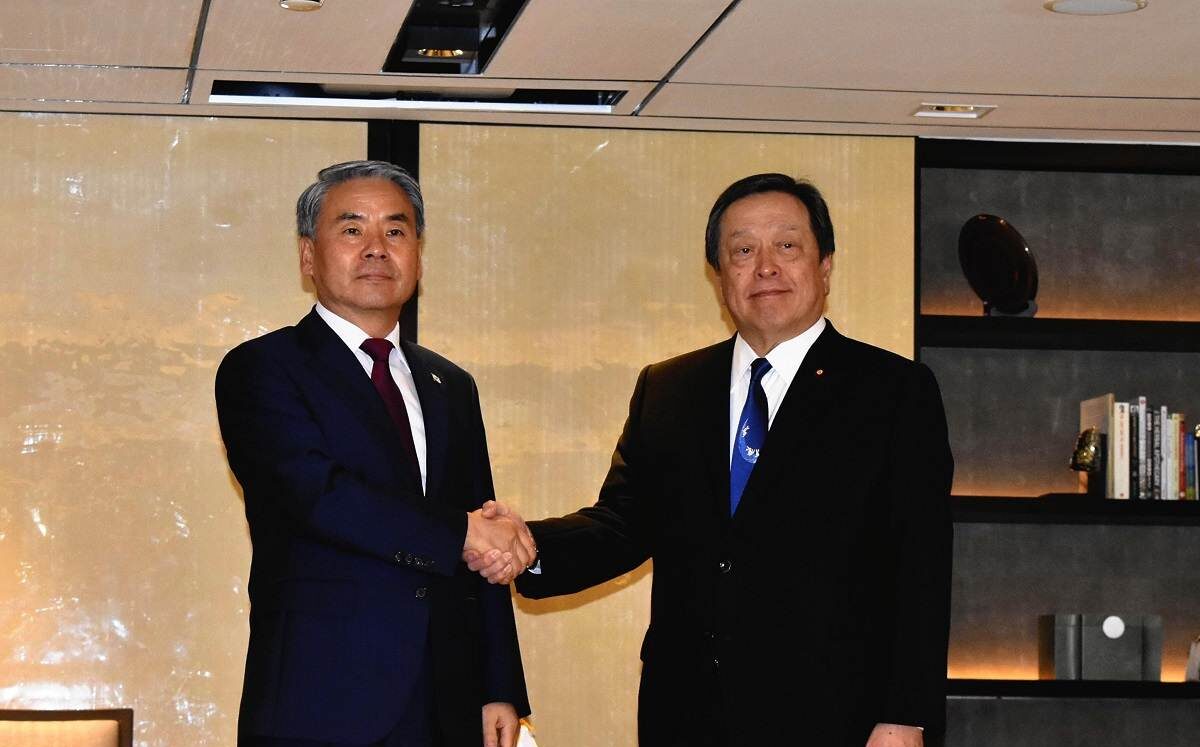
Defense Minister Yasukazu Hamada, right, shakes hand with South Korean Defense Minister Lee Jong-sup in Singapore on Sunday.
14:46 JST, June 5, 2023
SINGAPORE — In a meeting Sunday, the Japanese and South Korean defense ministers prioritized bilateral cooperation over seeking the facts of a past matter that soured the countries’ relationship.
Defense Minister Yasukazu Hamada and his South Korean counterpart, Lee Jong-Sup, agreed to accelerate talks between the two countries’ defense authorities to prevent a repeat of incidents such as one involving a South Korean warship directing its radar at a Japanese ship. As relations between the two countries are rapidly improving, the aim is to remove the “last remaining thorn” between the defense authorities and to promote bilateral cooperation in defense, as well as trilateral cooperation with the United States.
Before their meeting, Hamada and Lee shook hands and smiled, implying a mood of reconciliation. After the meeting, Hamada told reporters that Lee “was willing to have a firm and frank discussion.”
The first Japan-South Korea defense ministers’ meeting in about 3½ years took place largely because “moves to improve Japan-South Korea relations have gotten on track” since South Korean President Yoon Suk Yeol’s visit to Japan in March, according to Prime Minister Fumio Kishida.
In March, Seoul withdrew its notice to scrap the General Security of Military Information Agreement (GSOMIA) with Tokyo, and in May a Maritime Self-Defense Force destroyer displaying the Self-Defense Force’s Rising Sun ensign made a port call in South Korea for the first time in about six years.
In the December 2018 incident during Moon Jae-in’s administration, a South Korean ship directed its fire control radar at a MSDF patrol aircraft over the Sea of Japan. During Sunday’s talks, the South Korean side did not acknowledge the fact. A senior Japanese Defense Ministry official said: “We should not dwell forever on what happened under the previous administration. What’s important is to prevent a similar incident from happening again.”
It appears that Seoul deemed it beneficial to focus on talks to prevent a recurrence so that Japan and South Korea can work together on the issue of a military spy satellite launch by North Korea.
After the 2018 incident, Seoul established guidelines for Japan alone that allow the South Korean military to direct its radar at its own discretion if Japanese SDF aircraft approach after two warnings. Seoul will consider withdrawing this guideline at future talks. Tokyo is calling for the withdrawal and closely watching Seoul’s decision.
Top Articles in Politics
-

Japan Tourism Agency Calls for Strengthening Measures Against Overtourism
-
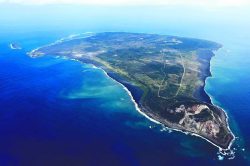
Japan Seeks to Enhance Defense Capabilities in Pacific as 3 National Security Documents to Be Revised
-

Voters Using AI to Choose Candidates in Japan’s Upcoming General Election; ChatGPT, Other AI Services Found Providing Incorrect Information
-
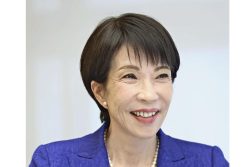
Japan’s Prime Minister: 2-Year Tax Cut on Food Possible Without Issuing Bonds
-
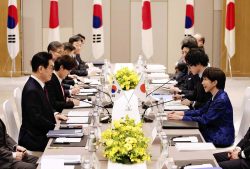
Japan-South Korea Leaders Meeting Focuses on Rare Earth Supply Chains, Cooperation Toward Regional Stability
JN ACCESS RANKING
-

Univ. in Japan, Tokyo-Based Startup to Develop Satellite for Disaster Prevention Measures, Bears
-

JAL, ANA Cancel Flights During 3-day Holiday Weekend due to Blizzard
-

Japan Institute to Use Domestic Commercial Optical Lattice Clock to Set Japan Standard Time
-

China Eyes Rare Earth Foothold in Malaysia to Maintain Dominance, Counter Japan, U.S.
-

Man Infected with Measles May Have Come in Contact with Many People in Tokyo, Went to Store, Restaurant Around When Symptoms Emerged



